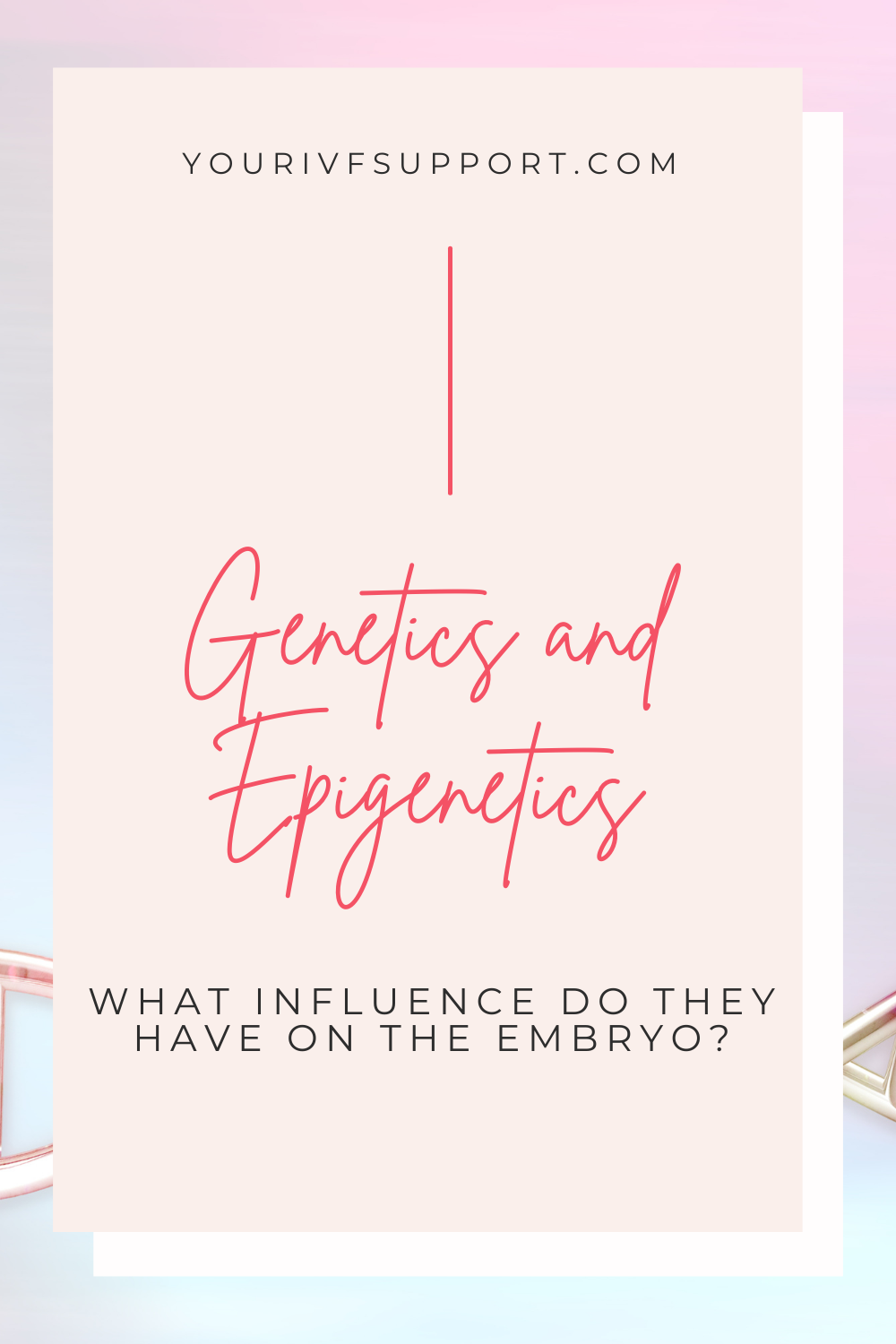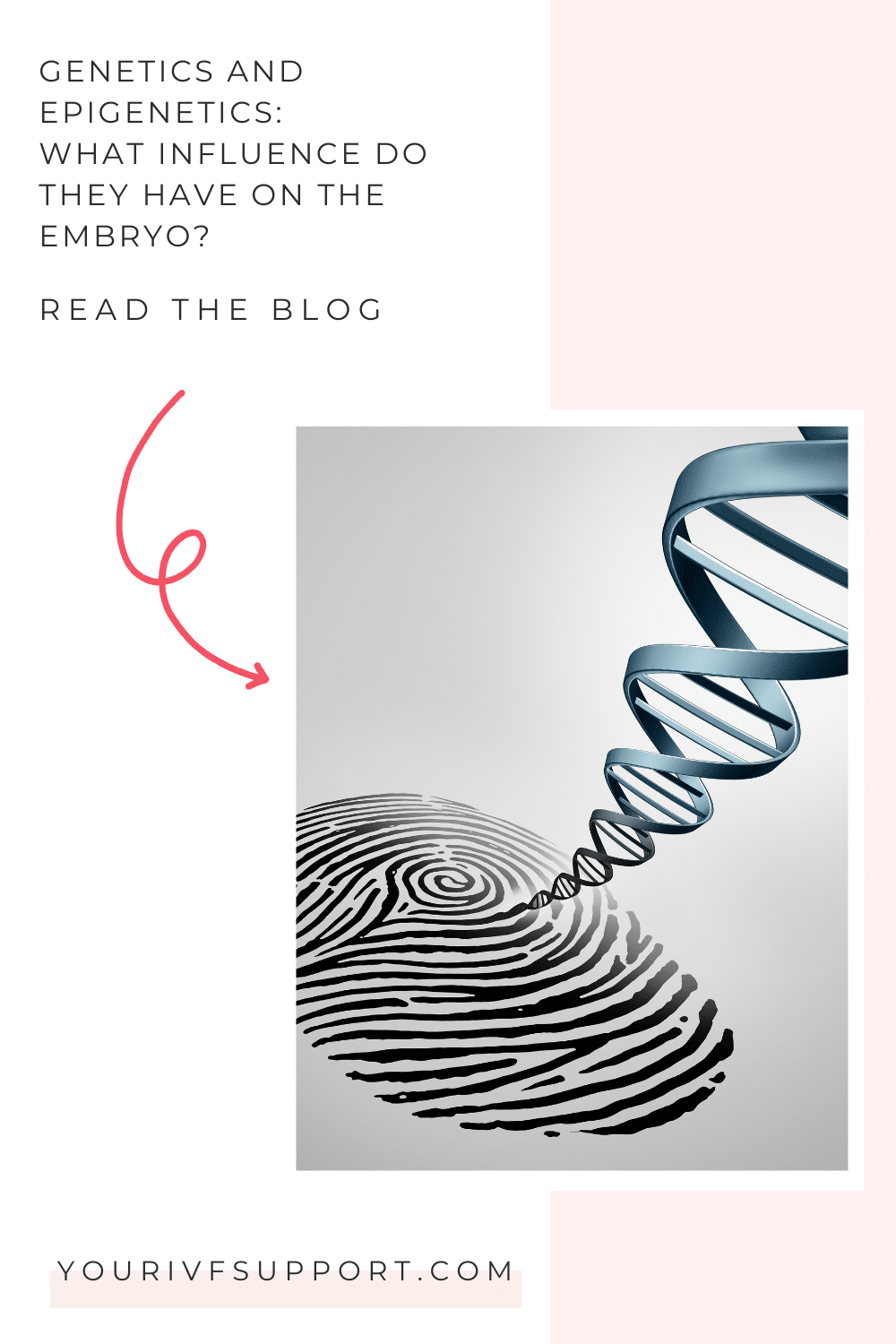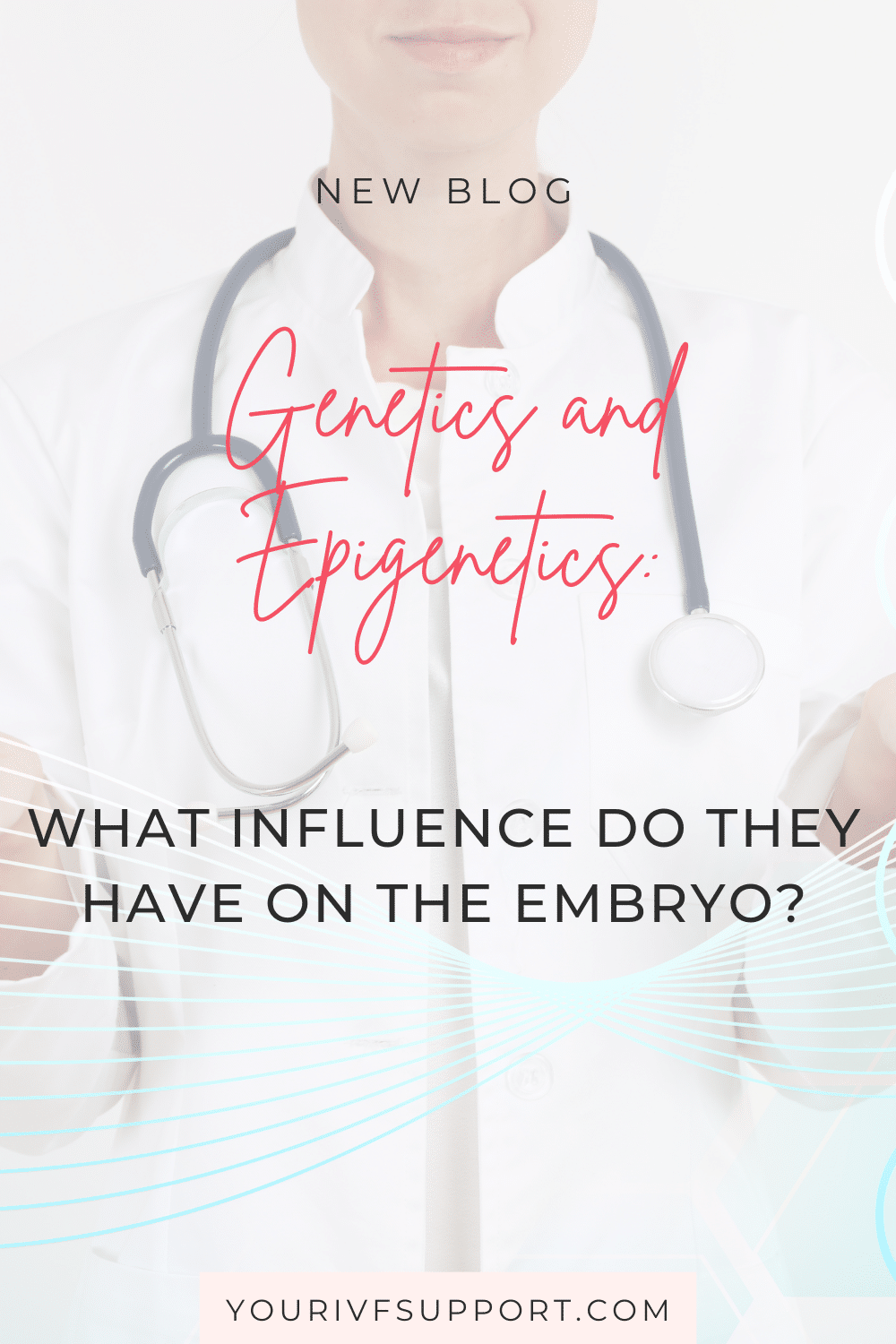We all know the effects of our genes - are we short or tall, do we have brown or green eyes, do we find maths easy or learn a new language? In addition to complex environmental factors, the development of our offspring is also controlled by genetic principles. However, recent research has also highlighted the influence of so-called epigenetics (ancient Greek ἐπί, epi "in addition, besides") on whether an embryo develops normally and how the new life will continue.
What are genes?
A gene is a unit of genetic information that contains the instructions for making proteins. Genes are inherited and provide the instructions for our hair colour, whether we develop freckles and whether our eyes are green or brown.
Each protein in our genes has a unique code made up of four possible building blocks (adenine, cytosine, guanine, thymine). The genetic material is found in the nucleus of the cell. When new life is created, the genetic information from the nucleus of the sperm and the egg come together and combine their genes. If genetic damage or mutations occur during embryogenesis, this can lead to early miscarriage in the first three months of pregnancy. There can also be abnormalities in the number of chromosomes as a result of maldistribution during cell division. Probably the best known example is trisomy 21 - Down's syndrome. We now know the underlying genetics of many inherited diseases, such as cystic fibrosis and sickle cell anaemia. Thanks to the latest research, doctors are able to provide much more specific treatment by identifying the underlying genetic mutation. In the case of the metabolic disease cystic fibrosis, for example, drugs have been available for almost a decade that mitigate the effects of the gene mutation by improving the function of the defective protein. Genetic research has already significantly improved the quality of life of many patients.
But are there other factors besides genes and upbringing that influence our development?
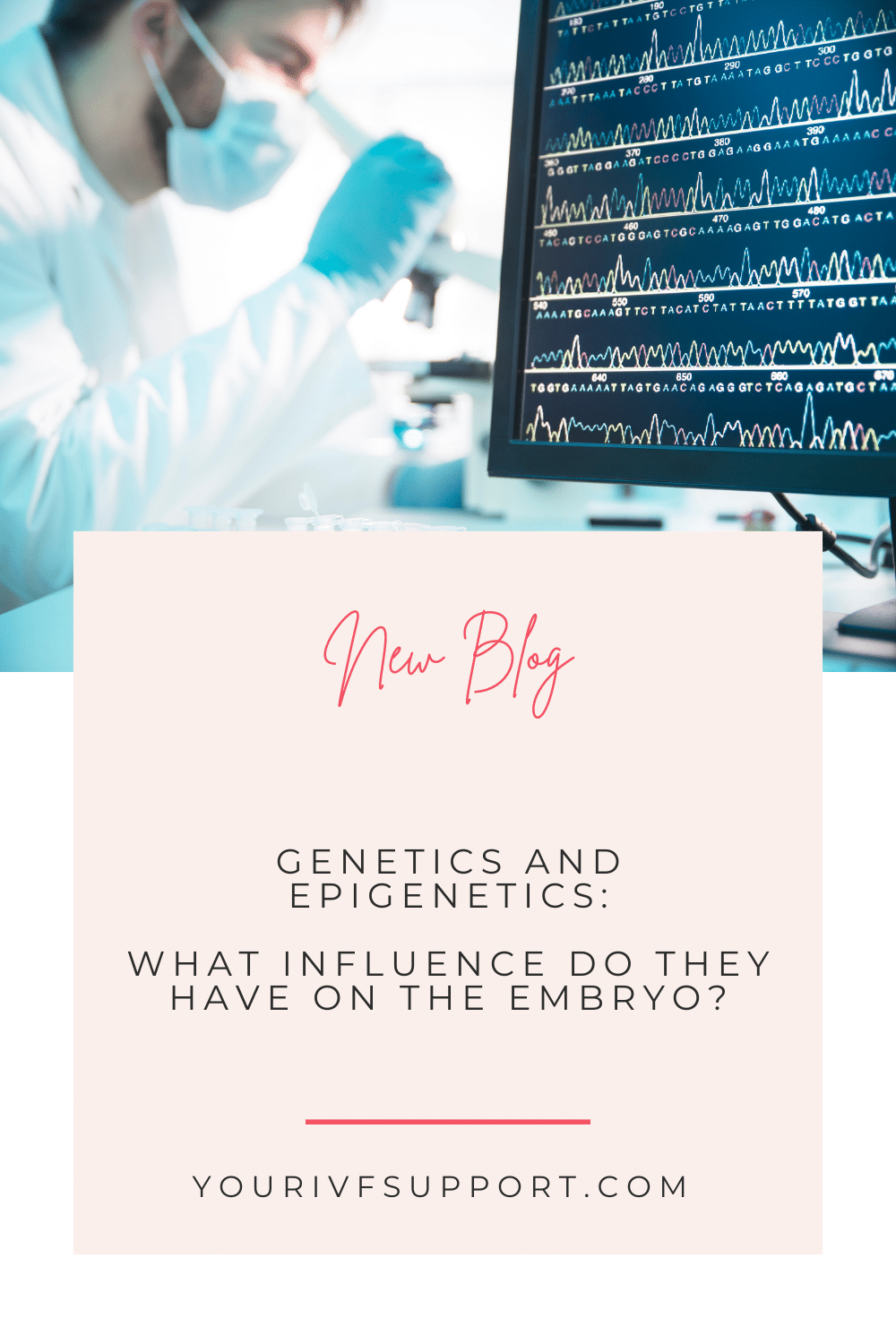
What is epigenetics?
Epigenetics is the science of heritable traits that are not inherited in the sequence of the genome. Epigenetics is an additional way of passing on information during inheritance without directly altering the DNA. Specifically, epigenetics involves changes in the activity and expression of different genes in different cells of the body. This is done, for example, by adding special chemical groups (methylation) or by changing the packaging of the DNA (histone modification). There are also special proteins that can silence entire genes. Epigenetic changes are also likely to be passed down through generations in a family. Since environmental factors play an important role in epigenetic modulation of the genome, the lifestyle of previous generations can influence the genetic starting conditions of a child.
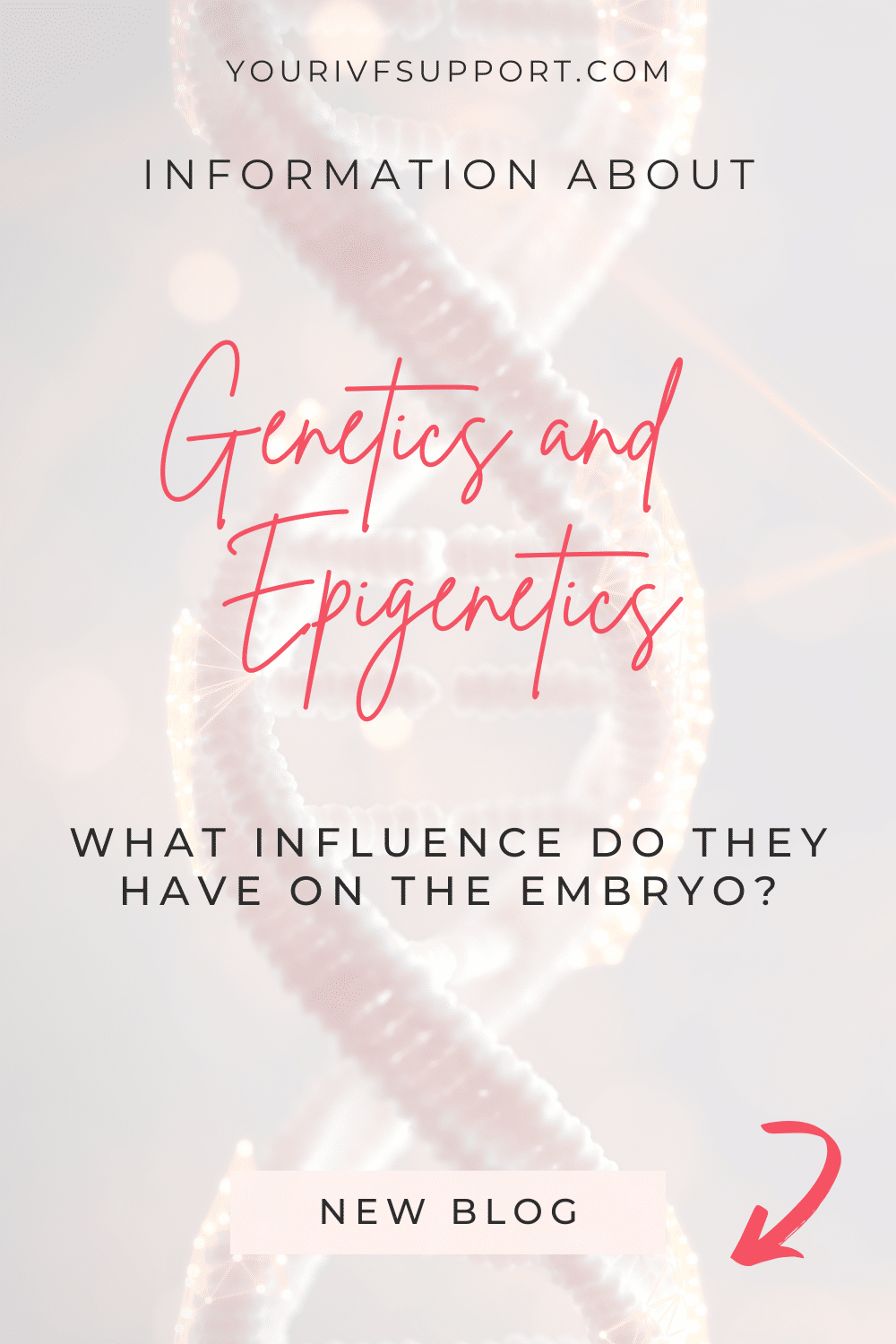
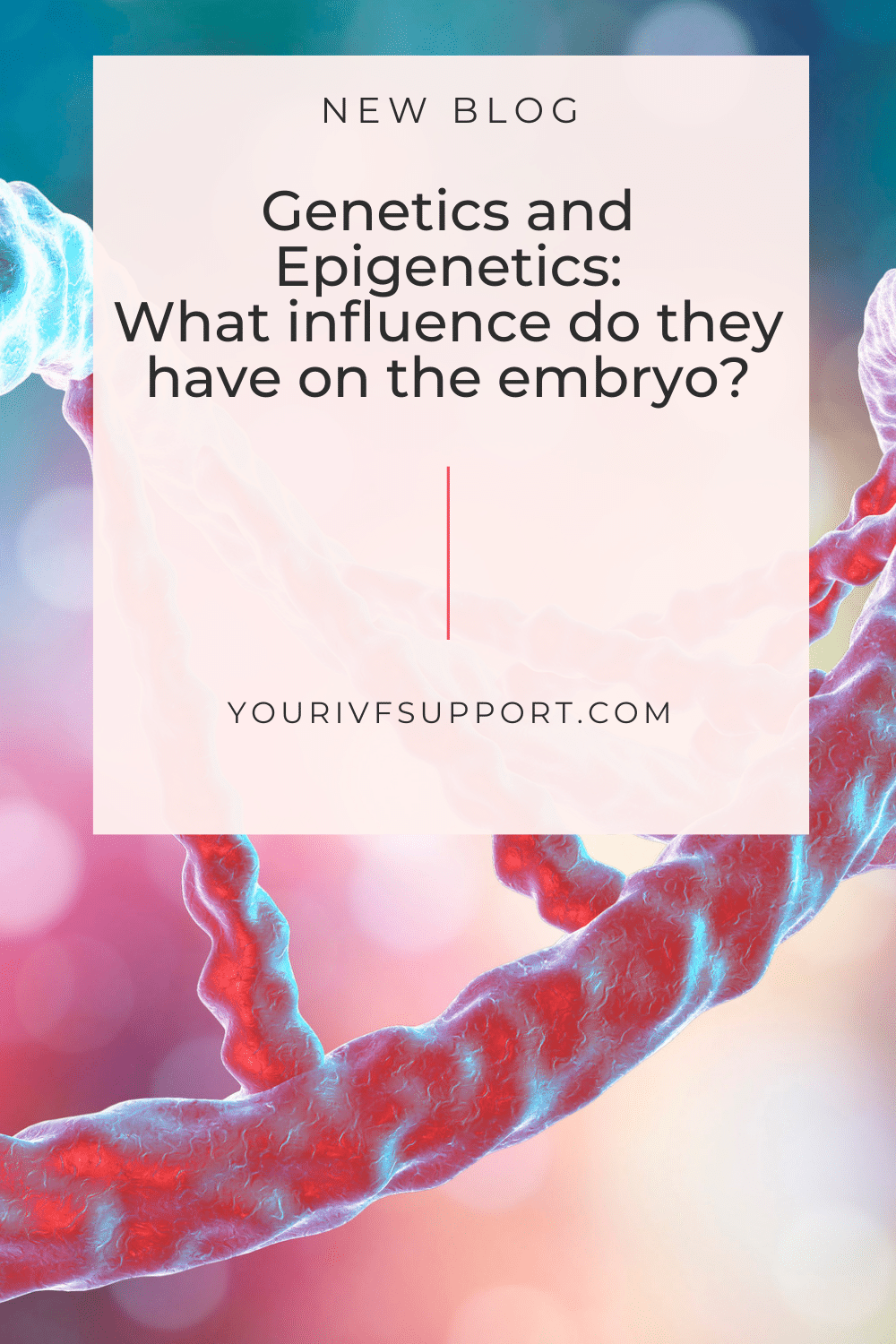
Epigenetics during embryonic development
Epigenetics plays a crucial role in ensuring that the egg and sperm develop into a complete embryo with multiple organs after fertilisation. During embryogenesis, stem cells can switch genes on and off very specifically as they develop into highly specific tissues, such as nerve, muscle or skin cells. Through countless cell divisions, stem cells differentiate into increasingly specific progenitor cells that eventually make up the human body. Researchers at the Max Planck Institute in Freiburg have discovered that this epigenetic information is essential for the healthy development of an embryo. They studied fruit flies and their reproduction. Embryos in which the epigenetic modifications were deleted were unable to develop fully. The group found evidence that epigenetics can be inherited and seems to be very important for embryogenesis.
Epigenetic modifications are like a dial for our genes, allowing the right genes to be activated at the right time. In this way, different tissues and organs can be formed from the identical genetic information of each cell.
"Trauma-induced epigenetic changes can be reversed."
Can the trauma of my grandparents determine my life?
One aspect of epigenetic research is the study of "intergenerational trauma" - the idea that the experiences and external conditions of ancestors can influence offspring from the very beginning of life. Recent research on this topic has shown that this influence is not only due to behavioural patterns that are transmitted to offspring through model learning, but is also epigenetically determined. For example, a response pattern that a grandmother develops as a child in response to environmental stressors can influence her grandchild's response to psychological stress through epigenetic factors. Epigenetic modifications of our genetic material are thus a "biological memory" of our family history.
An impressive experiment at the Swiss Federal Institute of Technology in Zurich showed that mice conceived by IVF show certain behavioural patterns even when the social behaviour of the mother could not be influenced. The offspring of mice that had been separated from their mothers as adolescents continued to show antisocial, depressive and risk-taking behaviour. The researchers were able to show that these behaviours persisted for several generations after the initial trauma (separation from the mother). Professor Mansuy even found these epigenetic changes in eggs and sperm. Although much of the epigenetic information is erased in the germ cells, some changes could persist into the new generation. A review in 2020 showed that the offspring of war veterans had higher rates of behavioural problems on average. But is epigenetics just a biological shackle that binds us to the bad experiences of our ancestors?
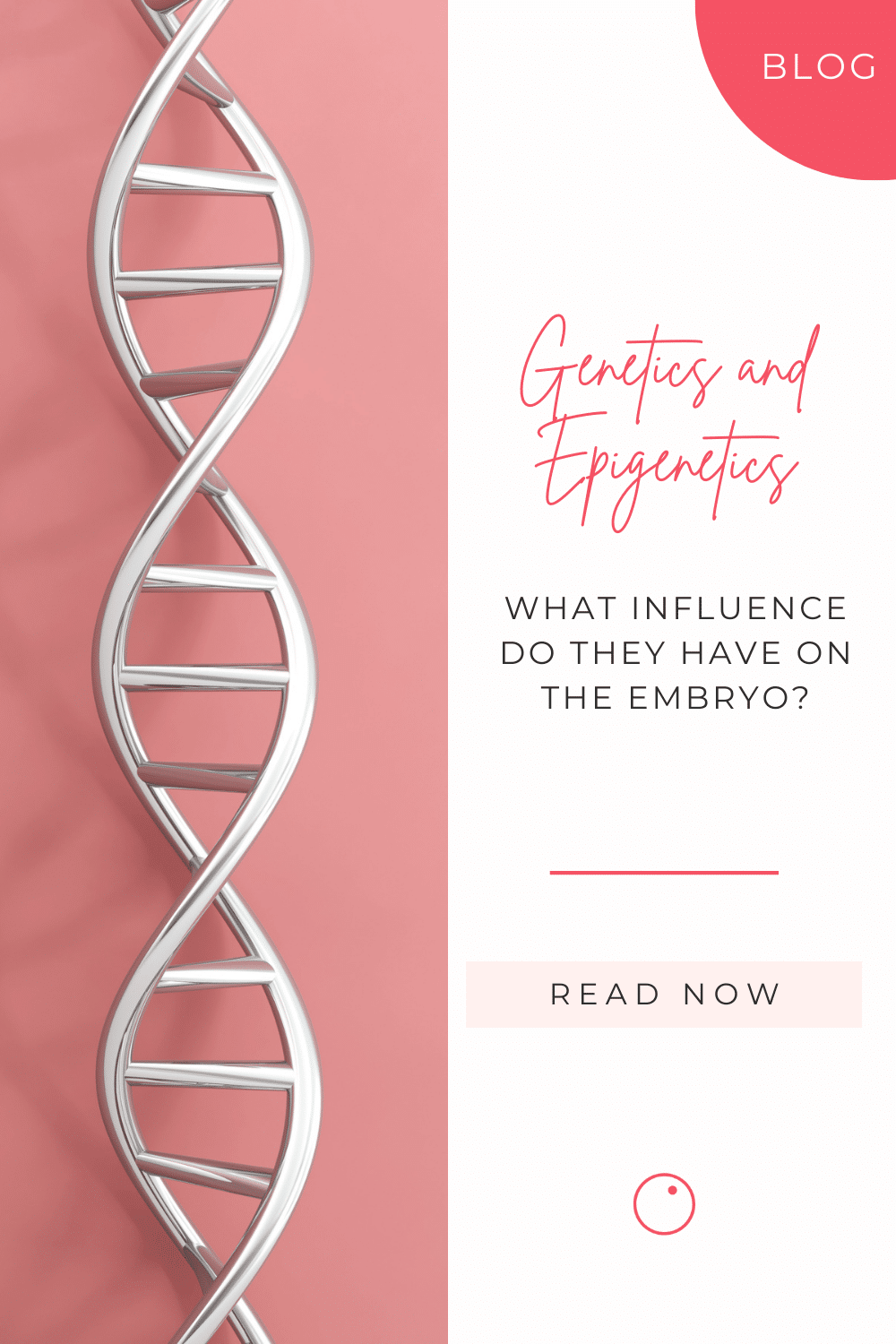
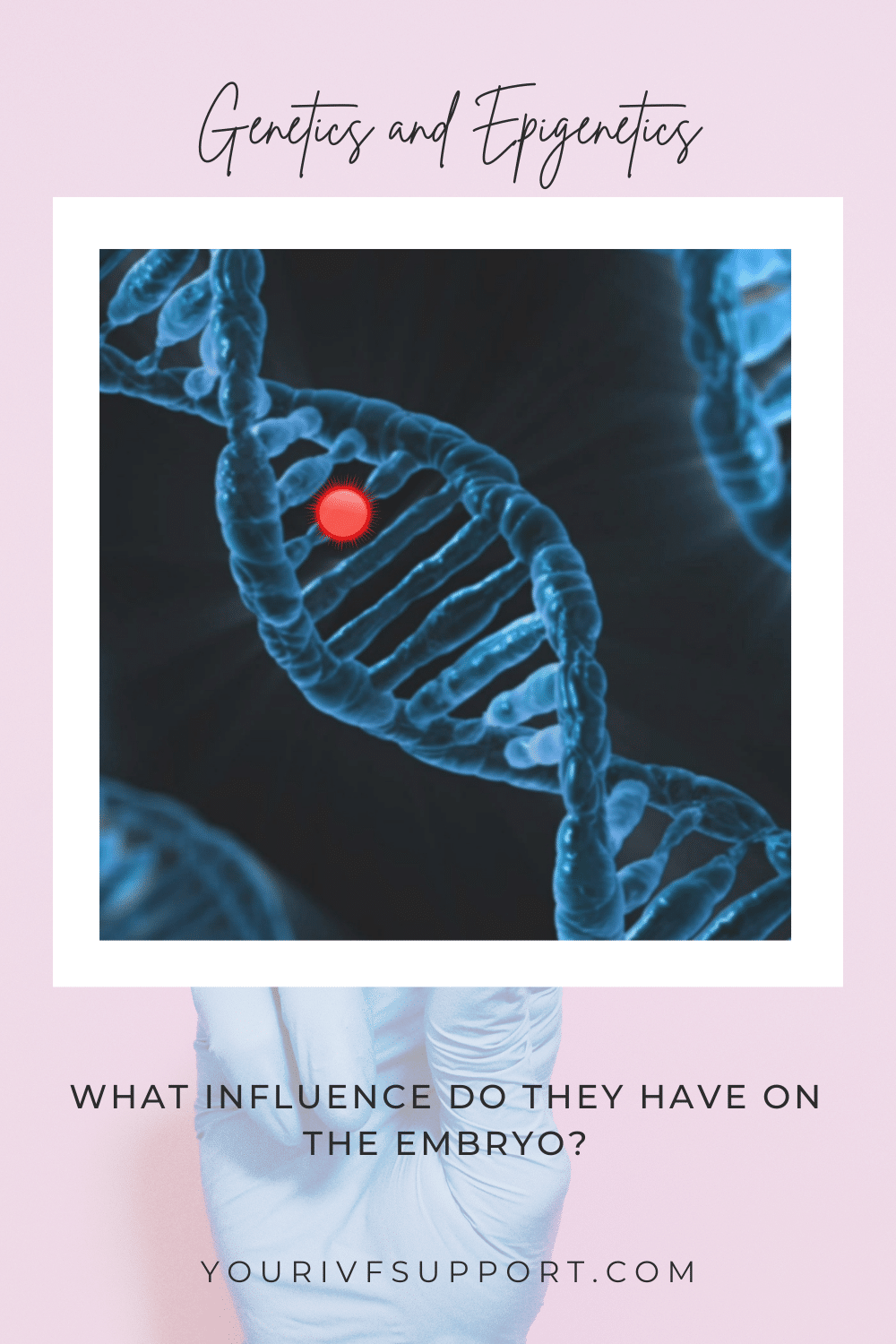
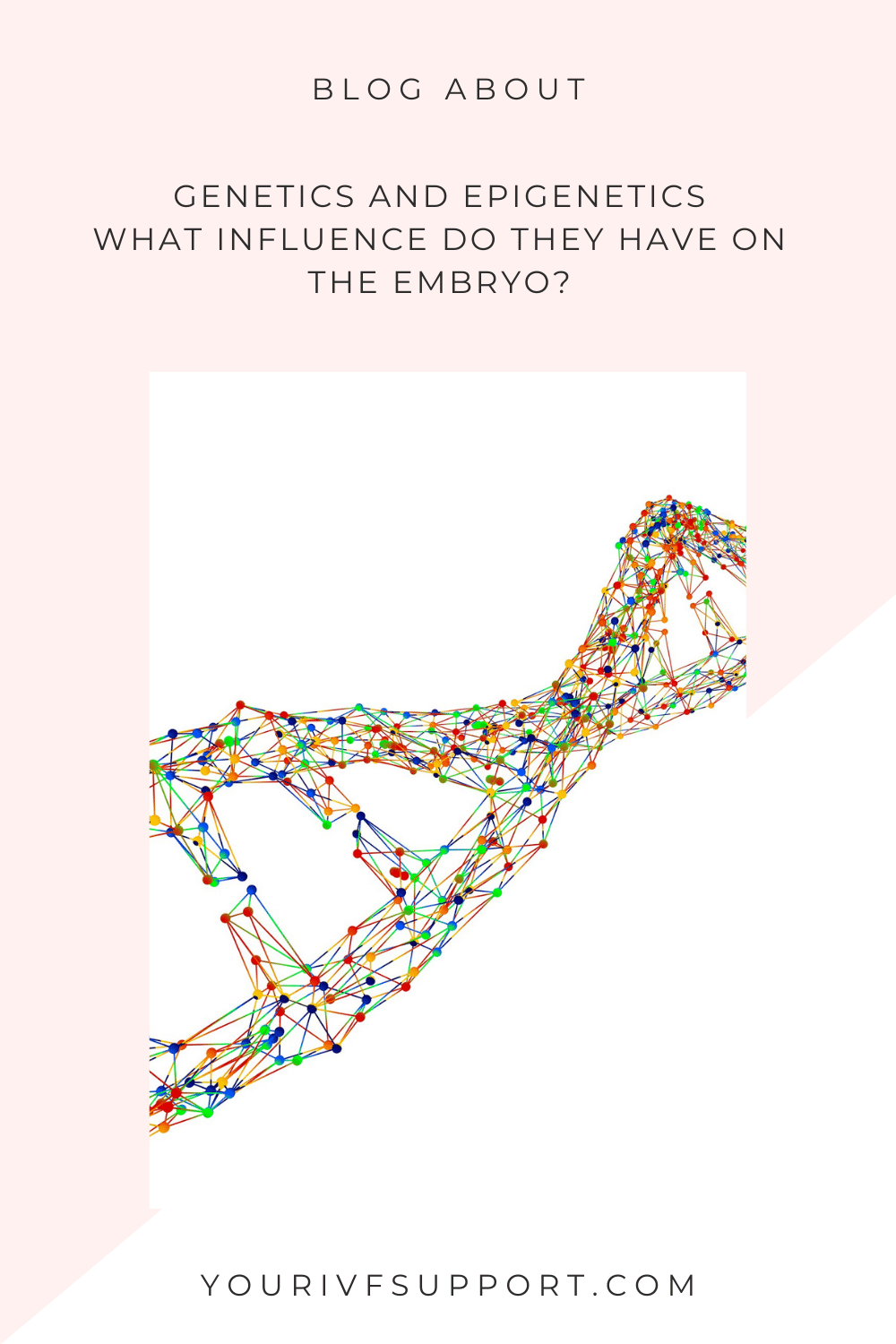
Nature or nurture?
If the offspring are nurtured and raised in a positive environment, epigenetic changes caused by trauma can also be reversed. One way to give future offspring a good start in life is for partners to lead healthy lifestyles. A Swedish study found a link between exercise and epigenetics. Subjects who completed a 12-week exercise programme showed epigenetic changes that were conducive to muscle growth. Exercise caused methylation in pro-inflammatory genes, making them less active. This even led to a reduction in cancer rates by inhibiting inflammatory responses. Unhealthy lifestyles also lead to epigenetic changes that promote the development of lifestyle diseases. Exercise has also been shown to cause methylation in genes that promote diabetes and obesity. A well-publicised study in Sweden found that subjects whose grandfathers were malnourished as adolescents lived longer. Interesting studies of identical twins have shown that different lifestyles lead to 'epigenetic drift' - clearly different expression patterns of otherwise identical genes in these twins. This led to differences in the incidence of many diseases, such as diabetes, cancer and inflammatory bowel disease.
These results show that although we are all born with a certain genetic make-up, there is a lot we can do to influence our genes. How much epigenetic information is passed on to human offspring is not yet fully understood.
Thus, there seems to be a clear answer to the much debated question of whether our behaviour depends on our genetic information ("nature") or on our upbringing and socialisation ("nurture"): it depends on both. Although there are still many unanswered questions in the field of epigenetic research, interesting results have been published in recent years. In any case, a healthy lifestyle seems to produce changes that could potentially be passed down through generations. Together with a positively stimulating environment, education and socialisation, the targeted manipulation of epigenetic information is a building block for creating the best possible starting conditions for a new life. Ultimately, it is likely to be a highly complex interplay of genes, epigenetic changes and upbringing that makes us the people we are.
References
https://www.science.org/doi/10.1126/science.aam5339
https://www.mpg.de/11396064/epigenetik-vererbung
https://www.ncbi.nlm.nih.gov/pmc/articles/PMC3092677/
https://www.theatlantic.com/science/archive/2018/05/twin-epigenetics/560189/
